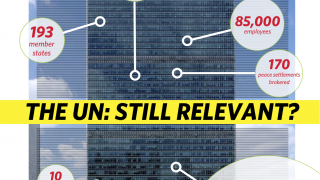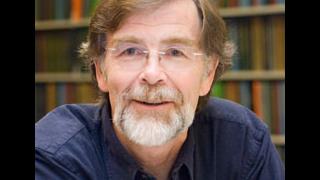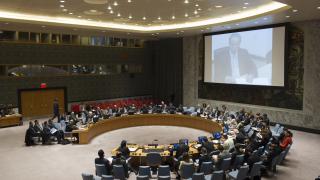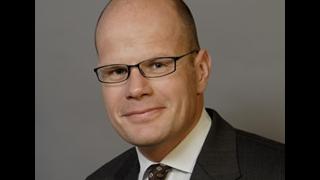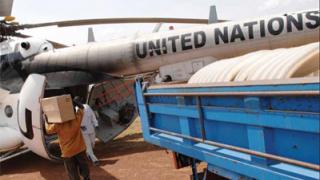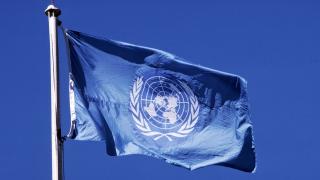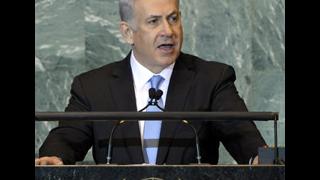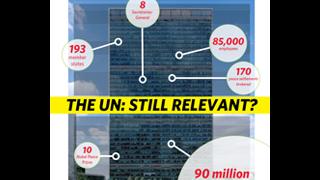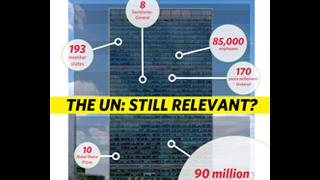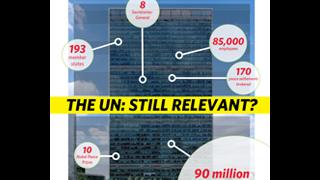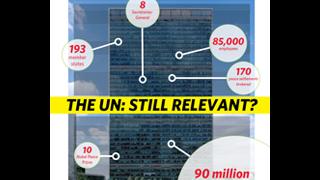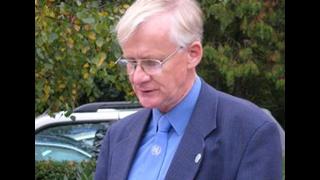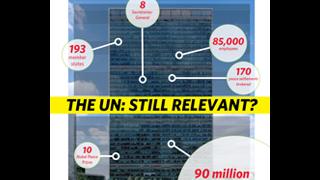
There are plenty of misapprehensions about – and deliberate distortions of – the role played by the UN. Here we tackle some of the more tenacious fallacies
Myth 1: The UN is expensive
In fact: For about $30bn a year – the equivalent of Wall Street bonuses in 2008 – the UN runs humanitarian, development and peacekeeping operations around the world.
Myth 2: The UN doesn't really do anything
In fact: The UN feeds, shelters, vaccinates and educates millions of people every day. The World Food Programme alone reaches 90m people a year. UN efforts have led to the eradication of smallpox, protected civilians around the world and provided billions in development assistance.
Myth 3: The UK spends too much money on the UN
In fact: Although the UK is the fourth-largest contributor to the UN's core budget, this amounted to just £111m or 0.0076% of gross domestic product in 2010. The estimated cost of the London 2012 Games is £9bn.
Myth 4: Wealthy countries do not need the UN
In fact: The world's most pressing challenges – from climate change to terrorism – cannot be tackled in isolation. The UN enables states to forge global solutions. By working through it, no country – rich or poor – need shoulder the burden or cost of tackling them alone.
Myth 5: The UN doesn't directly benefit people in rich countries
In fact: An effective UN is in the interests of all the world's people. It has a profound impact on our daily lives, from labour rights to aviation standards, telecommunications to heritage sites, and fish stocks to agriculture.
Myth 6: The UN is a world government
In fact: The UN is a voluntary association of 193 sovereign states. These member states determine the organisation's priorities, programmes and budget. They do not surrender their sovereignty at the UN. Indeed, the UN Charter is one of the strongest safeguards of member states' sovereignty.
Myth 7: The UN employs too many people
In fact: The UN system employs just under 85,000 people, about the same as the UK's Revenue & Customs department, and far fewer than global companies such as McDonald's.
Myth 8: The UN is full of despots. Democratic countries should form their own body
In fact: One of the UN's key roles is to facilitate dialogue between all states. The idea of a "league of democracies" might seem enticing but it has major shortcomings, not least that being a democracy is no guarantee of "decent" behaviour.
Myth 9: The UN is paralysed by the Security Council veto
In fact: Few would disagree that the Security Council needs reform. But since the end of the Cold War, it has agreed more than 1,300 resolutions, overseen an expansion in peacekeeping and made progess in areas such as women and security. The veto has been used on just 15 occasions since 2000, including 10 times by the US, nine of which related to Israel-Palestine.
Myth 10: The UN's army is too big and it can't control its troops
In fact: The UN has no army. Peacekeepers are supplied by states and the Security Council – not the Secretary-General – decides if, when and where to deploy a force, as well as what its mandate will be. While the UN can be criticised for taking too long to respond to misconduct, its scope for action is limited because troops fall beyond its disciplinary jurisdiction.

